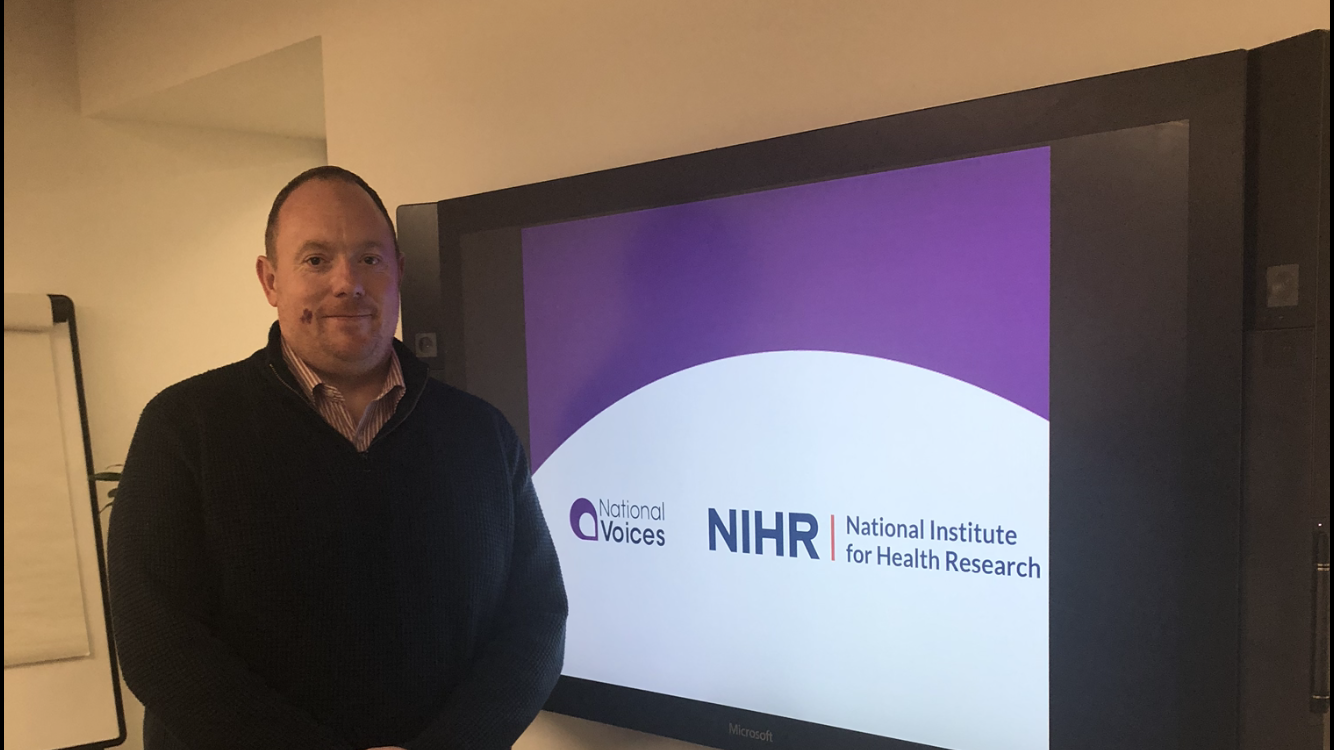Share this Page:
Steve Pointon attended a workshop last week organised by National Voices on behalf of the National Institute for Health Research (NIHR) to investigate what is important to people of working age when suffering from multiple long-term conditions. There are a number of things already known, such as over a quarter of people in England live with two or more conditions and the numbers are expected to keep rising. People from poorer incomes tend to get multiple conditions 10-15 years earlier in life than better off people.
The main aim of the workshop was to find out what needs to be the next priorities.
Within the room there were people with a number of illnesses, although there seemed a heavy quantity of people suffering from rheumatoid arthritis (RA) as their primary condition.
Throughout the group discussions a number of areas kept coming up as important and areas that people felt weren’t currently thought of enough or at all:
- Communication across the NHS. Different conditions means different specialists often at different hospitals and even different NHS regions. Rarely have people experienced notes from one condition been available to a specialist of another condition. When it is attempted to get the information it is often not possible as different NHS regions use different systems. A number of people felt that maybe when you are diagnosed with multiple conditions your local hospital or GP should employ specialist nurses or alike to co-ordinate treatments and paperwork. Also they could communicate with different specialists about stages of treatment in advance of any appointments. Obviously there would be a massive cost to the NHS for this and, therefore, highly unlikely as to have specialist staff for over ¼ of the population would be very expensive.
- Better information on initial diagnosis of where support is available. As I personally have highlighted in my journey through kidney cancer, clinical information is vital and needed. However, where do we go then? Specialists will often say “here is your sick note and see you at your next appointment.” What now? It is felt that whilst some illnesses are very good at signposting people to support agencies and charities, others actively do not as they believe people can often get the wrong information from non-clinical people.
- Not only would it be helpful for the above to be available at diagnosis, it was also suggested that more should be available in literature or workshops for family, friends and definitely employers. A lot of illnesses are difficult to discuss as they are quite personal and some industries are way behind in how to deal with them, i.e. mental health issues. Education was seen as a definite way forward and priority for others, not just the patients.
- Financial implications was a very highly discussed subject. Most agreed that following diagnosis no thought is given by anybody as to how that person is going to survive, especially if they are the major earner within a family. The benefits system is a minefield, although the Citizens Advice Bureau (CAB) are there to advise and assist, along with Macmillan in cancer cases, it is still difficult to navigate the Universal Credit System and the dreaded Performance Improvement Plan (PIP) procedures. It was also agreed that PIP renewals lead to extreme stress in the fact that most are automatically refused and you have to appeal, at which point people feel they have to justify their illness(es) despite medical evidence. It was felt that the system is constantly trying to trip people up rather than support those who need it the most.
- Psychological support and counselling was another area that many people at the workshop found deficient within the NHS. Patients with multiple long-term conditions were asking for more psychological support and better counselling services from the NHS throughout their care and treatment pathway.
Whilst there were many other areas touched upon, these seemed to be the key areas; however, the main feeling was around understanding for people who have more than one illness. People often know their bodies better than clinicians, but they tend to not be heard when they are at an appointment as the clinician may specialise in a different area. Especially prominent at GPs as they have a little information about most things and tend to stick to areas they know.
Overall, a very beneficial afternoon. NIHR are running two further workshops for people at either end of the age spectrum. For more information about National Voices workshops, visit their Eventbrite website here.















